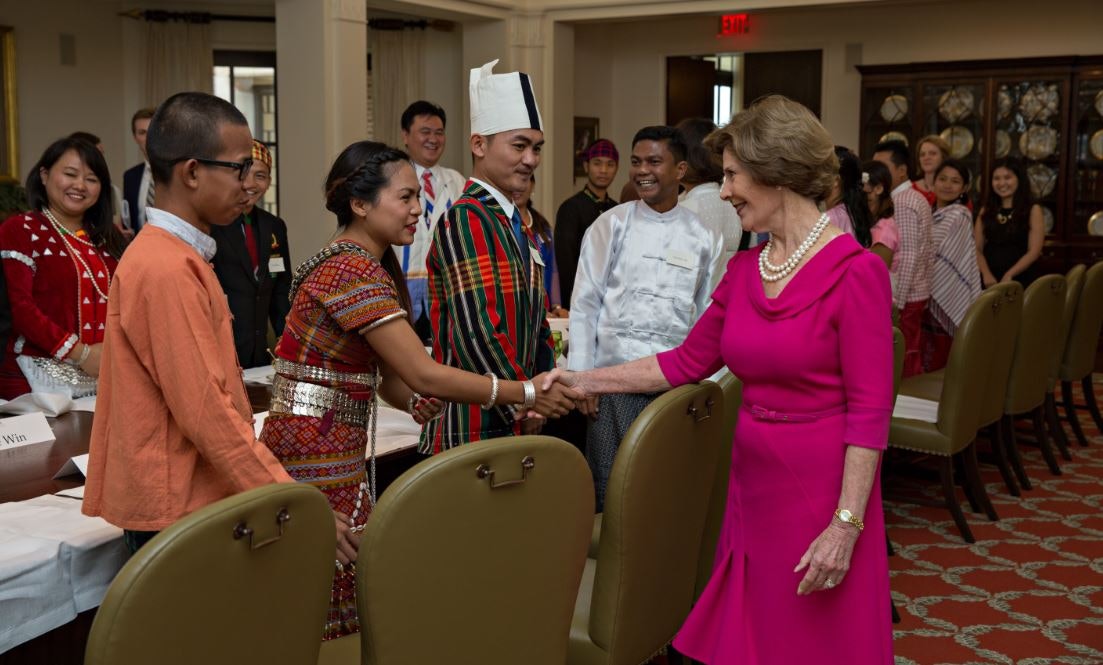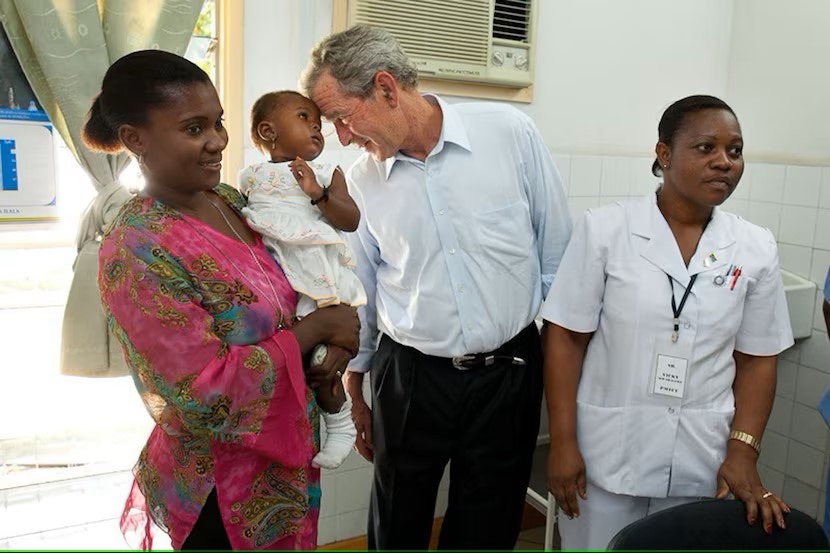In 2002, I became an advocate for human rights in Burma. I was deeply troubled by the country’s repressive military junta and its treatment of its opponents...But even in Burma’s darkest hour, brave pro-democracy leaders, like Aung San Suu Kyi, remained steadfast in their commitment to a free and democratic future.
President and Mrs. George W. Bush spoke at the graduation of the 2016 class of the Bush Institute’s Liberty and Leadership Forum. The class is made up of of 18 Young Leaders from Burma (Myanmar) who are contributing to their country’s transition to democracy.
The Bush Institute’s Liberty and Leadership Forum equips young leaders with the knowledge and skills they need to lead in countries where transitions to democracy are occurring. It uses a curriculum focused on the principles of liberal democracy and economic freedom, lessons from other democratic transitions, and practical leadership skills.
Thank you. Thank you very much, Aye Aye San. Thanks for that sweet introduction, and thank you for sharing your story with us.
In 2002, I became an advocate for human rights in Burma. I was deeply troubled by the country’s repressive military junta and its treatment of its opponents. The military had been in power for decades, despite protests at home and outcry abroad.
But even in Burma’s darkest hour, brave pro-democracy leaders, like Aung San Suu Kyi, remained steadfast in their commitment to a free and democratic future.
I was struck by these leaders’ unyielding optimism that one day Burma would be free, and today, thanks to their courageous work, Burma is much closer to that dream.
This afternoon, George and I spent time with the young leaders who will graduate in just a few moments from the Liberty and Leadership Forum.
They know the challenges and frustrations that remain in Burma. And they are working to make things better, and to establish a lasting peace in their country.
Thin Yu Mon is promoting religious freedom and indigenous rights in Burma. With more than 135 ethnic groups, Burma’s diversity should become an asset, rather than a wedge in society. Thin Yu Mon believes pluralism and tolerance can triumph over hatred.
Investing in the education and health of the Burmese people is essential for Burma’s future. And this is why Tayzar San operates a library in Burma for college students who are unable to find political science texts at their university. Neighborhood parents can also take their children to this library giving kids a safe place to read and to draw after school.
Ying Tzarm is developing a database to help document and resettle refugees when they begin returning home because she believes that Burma’s refugees should have a place in their country’s future.
Lway Aye Nang recruits and trains women to run for political office. She knows women can be catalysts for change in Burma, and that the inclusion of women in every aspect of society will strengthen her community and her country.
And because Burma’s rich past should not be forgotten, Chit Min Lay plans to develop a museum of national remembrance that will document the history of Burma’s pro-democracy movement, educating Burmese for generations to come.
In just a moment, you will hear more about the inspiring young leaders of the Liberty and Leadership Forum as they cross the stage to receive their certificates of completion, and join the ranks of the alumni.
But first, I want to thank our Burmese Young Leaders in the Liberty and Leadership Forum.
I am optimistic about Burma’s future because of you. I admire your courage and your strength, and I am thrilled to celebrate your graduation with you tonight.
As you travel back home to Burma, remember that President Bush and I stand with you, and we support your dreams for a better and more peaceful Burma.
May God bless you, your families, and your country.
Thank you.





























